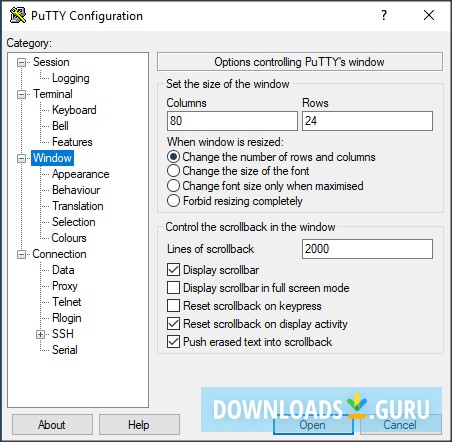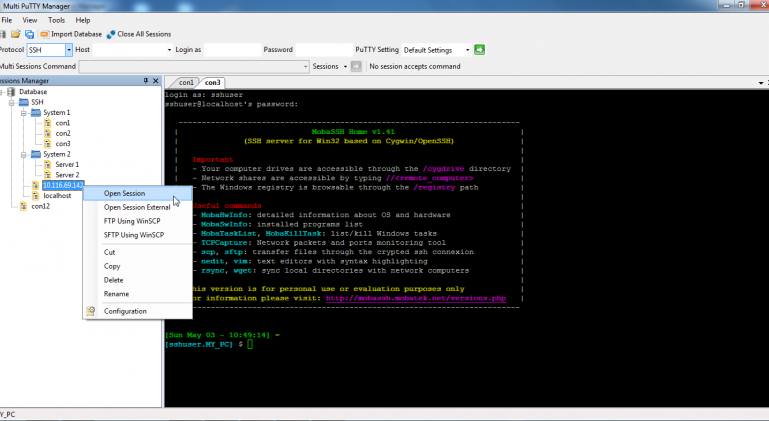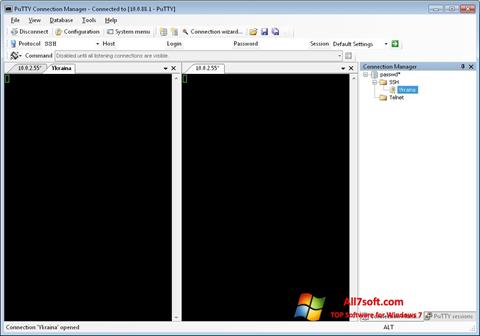
It allows you to manage and customize connections and sessions alongside the window and the terminal. Once you set up PuTTY, the clean and simple interface reveals a comprehensive configuration pane. Simply put, It gives you a window, where anything you type goes straight to a Unix machine.Īnything that the Unix machine sends back is displayed on the window, thereby allowing you to get access to a console remotely. Head back to the other directions to continue the setup.A powerful SSH and Telnet client PuTTY can be run on a Microsoft Windows machine to connect to a (for example) Unix machine or other cross-platform integrations. Login using the username “root” (all lowercase) and default password (most likely “edison” without quotes, but check the slip of paper that might have come with your pre-flashed Edison).

Note: If your Edison’s port doesn’t appear, make sure its battery is charged and/or the Edison is powered on.

If only one shows up while your Edison is plugged in, and none appear when your Edison is unplugged from your computer, then that is your Edison’s port.

Unplug the cable from the Explorer Board. If you see multiple entries and are unsure of which is the port you need: Make note of existing ports. On your computer, go to Control Panel\All Control Panel Items\Device Manager\Ports\ and look for USB Serial Port COMXX.

Once you plug in the cable, you need to determine which COM number it’s using.Note: This photo displays two cables plugged into the Edison board, but only one is necessary for connecting to your computer. Connect the board’s UART port with your computer’s USB port using one of the cables listed in the parts list (Dexcom’s charging cable will work too). One is labeled OTG (that’s for flashing) and one is labeled UART (that’s for logging into the Edison from a computer). You’ll see two microB USB ports on your explorer board.


 0 kommentar(er)
0 kommentar(er)
